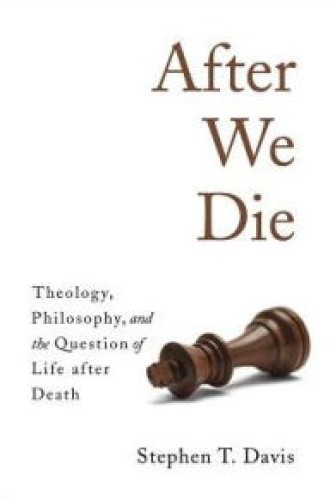After We Die, by Stephen T. Davis
The Nicene Creed, embraced by virtually all Christian churches, concludes: “I look for the resurrection of the dead, and the life of the world to come.” Resurrection and eternal life are not just one item on a list of Christian beliefs, they constitute the whole point of being a Christian. But, Stephen Davis observes in After We Die, the reality of resurrection and eternal life cannot be proved by experience. Reports about heaven from near-death experiences won’t do because, after all, the people doing the reporting didn’t die. So belief in eternal life is just that: a belief.
Whether that belief is plausible or preposterous, the first question to ask is, What does it mean? Philosopher Antony Flew argued long ago that the very idea of afterlife has no meaning; it is like a round square, self-contradictory. Afterlife implies that I could somehow attend my own funeral, which is absurd.
Read our latest issue or browse back issues.
Davis quickly dismisses Flew by noting that language is fluid: surviving death is not, after all, like surviving a car crash. Resurrection is not resuscitation. But if we extend the meaning of survive to an afterlife, what survives? Resurrected life comes only after the radical termination of life, this life, my life. My body is, once and for all, dead and done with.
A common answer within Christianity and other religious traditions is that the soul or mind survives. Even in ordinary life, the soul or mind is regarded as separate from the body. Despite the best efforts of neurologically entranced philosophers to claim that the mind is just the brain, thoughts intend something that neural events do not. My soul can be recognized as my person. Though I may express my person in bodily gestures, my body is not my person. The critical issue, then, is not the fact of the separation of the mind or soul from the body; it is whether that separation is—to use Davis’s labels—a difference of substance or property.
We have a range of property expressions for the doings of the mind or soul that are not at all proper for the body. My body does not read Kant, and I do not digest Kant’s Critique as a cannibal might Immanuel himself. Davis holds that property differences are finally based on substantial difference. Mind, soul, or something similar is essential to any logically coherent description of an afterlife. Some thing must exist beyond bodily death.
If one admits that the soul or mind exists in a substantial sense separate from the body and can survive death, does a disembodied mind or soul qualify as a person? If my mind lives on, is that me? Descartes’s famous Cogito ergo sum—I think, therefore I am—reduced human reality to a res cogitans, a thinking thing, but just thinking hardly seems to capture the idea of my person, in this life or the next.
Some Eastern religions posit an immortal substance beyond bodily existence but not personal salvation; the soul ultimately merges with Being or the world soul and loses individuality. Christianity promises personal salvation. But can a bodiless soul count as a person? Living persons have passions and pleasures, appetites and needs that bodiless souls apparently lack, thus the Christian belief in bodily resurrection seems to be a necessary condition for personal salvation—or ultimate perdition. Bodily resurrection recognizes the rooting of a person in bodily existence. The resurrected body may be, as Paul says, a “glorified” body, but it is a body.
Regarding the complicated theological debate about the relation of the resurrected body to the long-ago dead and decomposed body, Davis discusses two theological traditions: the patristic and the modern. The patristic tradition argued that, one way or another, the resurrected body must be materially the same as the body that died. Otherwise my resurrected body will not be me, but only a replica of me. Aquinas stated the problem: “If the body of the man who rises is not to be composed of the flesh and bones which now compose it, the man who rises will not be the same man.” The church fathers worried about how resurrection would be managed if I were eaten by a cannibal. Who gets the material parts? Modern theories reject the demand for material continuity; the disembodied soul is a sufficient vehicle for personal continuity. Davis tends to agree with that view and relies on God’s creative power to solve the problem of material continuity.
After We Die demonstrates that even the most minimal attempt to explain resurrection runs into logical snares and theological conundrums. Davis is scrupulous about noting difficulties and ingenious in offering possible solutions. I heartily commend his efforts to any preacher or teacher called upon to explain resurrection. Still, I think Davis’s work relies on a view of philosophy and a school of biblical theology that unwittingly limit the understanding of religious faith.
Davis characterizes his work as Christian philosophical theology, or analytical theology. His version of analysis is in the mainstream of academic philosophy, with a focus on the truth claims of assertions. Thus Davis starts by showing that assertion of a life after death, rightly understood, is a genuine truth claim, not a disguised piece of nonsense. So assured, one can then offer truth conditions for the idea of a separate soul and so on.
Davis’s theological references and citations are largely from contemporary scholars within the tradition of what I would call biblical plain-speech. When the New Testament says that Jesus rose from the dead, it means that the person who preached in Palestine and died on a Roman cross lived after death. He did not rise metaphorically into the kerygma of the apostles. If both Jesus’ resurrection and mine can be expressed in a plain-speech truth claim, then Davis’s analytic efforts are highly important.
The problem with demonstrating how biblical statements can make logical and factual sense is that it may involve bypassing how the Bible makes religious sense. To take a different view of the philosophical task: Wittgenstein rejected the type of analysis Davis practices because it fails to appreciate the varied ways in which language is actually used. We play many very different games with language. Davis concentrates on the game of making truth claims. Wittgenstein argues that the truth function game, however successful, fails to reach the religious game.
Consider Wittgenstein on the Last Judgment. “Suppose . . . we knew people who foresaw the future . . . and they described some sort of Judgement. Queerly enough, even if there were such a thing, . . . belief in the happening would not be at all a religious belief.” For Wittgenstein, belief in a Last Judgment is not a factual belief, it is an ultimate life decision. “Why shouldn’t one form of life culminate in an utterance of belief in a Last Judgement.” The idea of a Last Judgment is “a certain picture . . . constantly admonishing me; . . . the picture is constantly in the foreground.” Religious belief in a Last Judgment expresses a steadfast decision that life exists under an inescapable moral imperative. How that might be factually described in terms of souls, bodies, and resurrection is not so important.
As Wittgenstein says in another passage, “Only love can believe the Resurrection.” Sometimes, the more we explain love, the more we undermine its reality.





